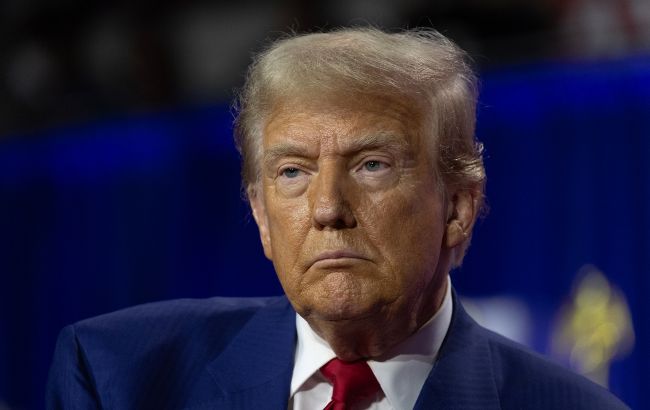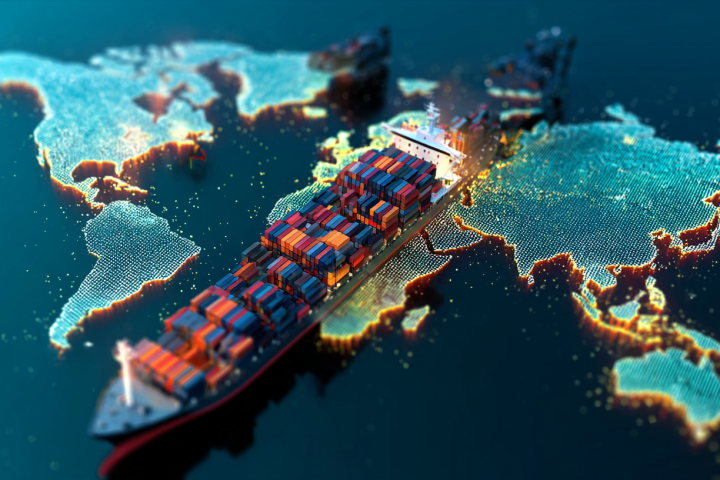Economic warfare has emerged as a defining characteristic of contemporary international relations, with trade wars and strategic tariff policies replacing traditional military conflicts as primary tools of geopolitical competition. Global trade fragmentation is accelerating as nations weaponize economic interdependence, creating parallel supply chains and competing economic blocs that challenge the post-World War II order of integrated global commerce.
Tariff wars between major powers have triggered a cascade of protectionist measures worldwide, fundamentally altering trade patterns and forcing companies to reassess their global strategies. Economic sanctions and trade restrictions have become increasingly sophisticated instruments of statecraft, targeting specific sectors, companies, and technologies rather than imposing broad economic isolation.
International trade warfare reflects deeper structural changes in the global economy, including the rise of economic nationalism, technological competition, and strategic concerns about supply chain dependencies that extend far beyond traditional trade disputes over market access or dumping allegations.
The Evolution of Modern Economic Warfare
From Free Trade to Strategic Competition
Trade war escalation has transformed from episodic disputes over specific industries to comprehensive economic competition encompassing technology, finance, and critical infrastructure. Modern economic conflicts involve complex strategies that blur the lines between commercial competition and national security concerns.
Strategic decoupling efforts by major powers aim to reduce economic dependencies in critical sectors while maintaining beneficial trade relationships in less sensitive areas. This selective approach to economic integration creates new complexities for businesses and policymakers navigating competing pressures.
Technology transfer restrictions have become central to economic warfare strategies, with governments implementing export controls, investment screening mechanisms, and research collaboration limitations designed to protect technological advantages and prevent strategic capabilities from reaching competitors.
Weaponizing Economic Interdependence
Supply chain warfare involves deliberate efforts to control or disrupt critical supply chains, forcing competitors to find alternative sources or accept higher costs for essential materials and components. Economic coercion through supply chain manipulation has proven particularly effective in sectors requiring specialized inputs or long development cycles.
Financial system exclusion represents another dimension of economic warfare, with restrictions on banking relationships, payment systems, and capital markets access used to isolate targeted countries or entities from global financial networks.
Digital economy restrictions encompass limitations on technology platforms, data flows, and digital services that reflect growing recognition of the strategic importance of information technologies and digital infrastructure in modern economies.
Major Trade War Flashpoints and Impacts
US-China Economic Competition
US-China trade war dynamics have evolved from traditional tariff disputes to comprehensive strategic competition involving technology, finance, and critical supply chains. Sino-American economic conflict has triggered global supply chain restructuring as companies seek to reduce exposure to bilateral tensions.
Technology export controls between the US and China have created parallel innovation ecosystems, with restricted access to semiconductors, artificial intelligence technologies, and advanced manufacturing equipment driving efforts toward technological self-reliance.
Tariff impact analysis shows significant costs for consumers and businesses in both countries, with trade diversion effects benefiting third countries that can substitute for restricted bilateral trade while creating new inefficiencies in global supply chains.
European Union Trade Disputes
EU trade policy has become increasingly assertive, with new instruments for addressing foreign subsidies, market distortions, and unfair trade practices that reflect growing European concerns about economic sovereignty and fair competition.
European economic sovereignty initiatives include efforts to reduce dependencies on critical materials, develop autonomous technological capabilities, and create alternative payment systems that reduce exposure to US dollar-dominated financial infrastructure.
Brexit implications for global trade patterns demonstrate how political decisions can fragment previously integrated markets, creating new barriers and forcing adjustments in trade relationships across multiple countries.
Regional Trade Bloc Formation
Trade bloc competition has intensified as countries seek security in numbers through regional agreements that provide alternatives to global integration while potentially excluding competitors from key markets.
RCEP and CPTPP represent competing models for Asia-Pacific economic integration, with different approaches to trade rules, digital governance, and strategic partnerships that reflect broader geopolitical alignments and economic philosophies.
Nearshoring and friendshoring trends show companies relocating production closer to home markets or to countries with compatible political systems, reducing efficiency in favor of perceived security and reliability.
Mechanisms and Tools of Economic Warfare
Tariff Strategies and Trade Barriers
Strategic tariff implementation has become more sophisticated, with targeted duties designed to protect specific industries, pressure trading partners, or respond to particular economic or political grievances rather than simply protecting domestic markets.
Non-tariff trade barriers including regulatory requirements, standards compliance, and administrative procedures have become important tools for restricting trade while maintaining plausible deniability about protectionist intentions.
Countervailing duties and anti-dumping measures provide legal frameworks for trade restrictions that can be implemented quickly in response to perceived unfair competition or economic threats.
Financial and Monetary Warfare
Currency manipulation accusations and competitive devaluations reflect attempts to gain trade advantages through monetary policy, though the effectiveness of such strategies has declined as exchange rates have become more market-determined.
Sanctions regimes have expanded dramatically, with financial restrictions becoming primary tools for economic pressure that can be implemented more quickly and with less collateral damage than traditional trade embargoes.
Payment system exclusion from SWIFT and other international financial networks provides powerful leverage over countries and entities dependent on global financial integration, though it also incentivizes development of alternative systems.
Technology and Innovation Competition
Export control regimes have expanded beyond traditional military technologies to include civilian technologies with potential dual-use applications, creating new complexities for international technology cooperation and trade.
Research collaboration restrictions limit academic and commercial partnerships in sensitive technology areas, potentially slowing innovation while protecting technological advantages and intellectual property.
Standards competition involves efforts to establish technical standards that favor domestic industries or exclude competitors from key markets, particularly important in emerging technologies like 5G networks and electric vehicles.
Economic and Business Implications
Supply Chain Restructuring
Global supply chain fragmentation has accelerated as companies reduce their exposure to geopolitical risks by diversifying suppliers, relocating production, and building redundancy into their operations at significant cost.
Regionalization trends show production networks becoming more geographically concentrated as companies prioritize proximity over efficiency, potentially reducing global economic integration and increasing production costs.
Strategic stockpiling of critical materials and components has increased as businesses and governments seek to reduce vulnerabilities to supply disruptions caused by trade conflicts or geopolitical tensions.
Investment and Capital Flow Disruptions
Foreign investment screening mechanisms have proliferated as governments seek to prevent strategic assets from falling under foreign control while potentially deterring beneficial international investment and technology transfer.
Capital flow restrictions including limitations on outbound investment and requirements for domestic ownership in key sectors reflect growing concerns about economic security and technological independence.
Market access restrictions in response to trade conflicts can limit growth opportunities for multinational companies while forcing expensive adjustments to business models and market strategies.
Sectoral Impact Analysis
Technology sector fragmentation has created parallel innovation ecosystems with limited interoperability, potentially slowing global technological progress while increasing development costs and reducing competition.
Agriculture and commodities remain vulnerable to trade restrictions despite their essential nature, with food security concerns and commodity weapon allegations creating volatility in global markets.
Manufacturing relocation costs include not only direct expenses of moving production but also the loss of specialized knowledge, supplier relationships, and economies of scale that had developed over decades of international integration.
Geopolitical Drivers and Strategic Considerations
National Security and Economic Security Convergence
Economic security doctrine increasingly treats economic relationships as matters of national security, with governments viewing trade dependencies as potential vulnerabilities that must be managed through policy intervention.
Critical sector protection extends beyond traditional defense industries to include semiconductors, rare earth minerals, telecommunications equipment, and other technologies deemed essential for national competitiveness and security.
Resilience versus efficiency trade-offs require businesses and governments to balance the cost savings of global integration against the risks of supply disruption and strategic manipulation by competitors or adversaries.
Technological Competition and Innovation
Innovation ecosystem competition involves efforts to attract talent, investment, and research capabilities while preventing competitors from accessing key technologies or benefiting from domestic innovation investments.
Technological sovereignty goals drive policies to develop domestic capabilities in critical technologies, even when this requires significant investment and may result in less efficient outcomes than international cooperation.
Brain drain and talent competition reflect recognition that human capital is crucial for technological leadership, with countries implementing policies to attract skilled workers while restricting their movement to competitors.
Alliance Politics and Economic Coalitions
Economic alliance building involves creating partnerships with like-minded countries to share the costs of economic competition while presenting unified fronts against economic coercion and unfair trade practices.
Multilateral coordination on trade restrictions and economic sanctions can increase their effectiveness while reducing the costs for individual countries, though it requires significant diplomatic coordination and compromise.
Third country effects of bilateral trade wars often force allies and partners to choose sides or find ways to maintain relationships with multiple competing powers, creating diplomatic complications and economic inefficiencies.
Long-term Consequences and Future Scenarios
Potential for Economic Bloc Formation
Regional economic blocs may become more prominent as countries seek alternatives to global integration that provide economic benefits while maintaining strategic autonomy and reducing exposure to external pressure.
Technology standards divergence could create incompatible systems that fragment global markets and reduce the benefits of technological innovation while increasing costs for businesses and consumers.
Financial system fragmentation including alternative payment systems and digital currencies could reduce the effectiveness of financial sanctions while creating new complexities for international commerce and monetary policy.
Impact on Global Economic Growth
Trade war economic costs include not only direct effects of tariffs and trade barriers but also indirect consequences of increased uncertainty, reduced investment, and less efficient resource allocation globally.
Innovation and productivity effects of economic fragmentation may reduce the pace of technological progress and economic growth as the benefits of international specialization and knowledge sharing are diminished.
Development implications for emerging economies include reduced access to global markets, technology, and investment, potentially slowing economic development and poverty reduction efforts.
Scenarios for Future Economic Relations
Managed competition scenarios involve rules-based frameworks for economic competition that prevent the most destructive forms of economic warfare while allowing for strategic competition in key areas.
Bipolar economic order outcomes could create two largely separate economic systems centered around competing powers, with significant implications for countries forced to choose between them.
Fragmented multilateralism may emerge with multiple overlapping economic arrangements that provide alternatives to global integration while maintaining some level of international economic cooperation.
Mitigation Strategies and Policy Responses
Business Adaptation Strategies
Risk management frameworks for multinational companies must now include geopolitical analysis, scenario planning, and contingency preparations for trade disruptions and economic restrictions.
Supply chain diversification strategies require significant investment in new relationships and capabilities while accepting higher costs in exchange for reduced exposure to geopolitical risks.
Political risk insurance and other financial instruments can help businesses manage some consequences of economic warfare, though coverage may be limited for the most serious disruptions.
International Institution Reform
WTO modernization efforts seek to update international trade rules for the digital economy while addressing concerns about unfair trade practices and economic coercion that current rules cannot adequately address.
Regional institution strengthening may provide alternatives to global frameworks that have become paralyzed by great power competition, though they may also contribute to economic fragmentation.
New governance mechanisms for emerging technologies and digital trade require international cooperation despite broader tensions, as the global nature of these issues makes unilateral approaches inadequate.
Conclusion: Navigating the New Era of Economic Competition
Economic warfare has become a permanent feature of international relations, requiring fundamental adjustments in how businesses, governments, and international institutions approach global commerce and economic integration. Trade wars and global trade fragmentation represent not temporary disruptions but structural changes that will shape economic relationships for decades.
Tariff wars and other forms of economic competition reflect deeper changes in the global balance of power and the relationship between economics and security that cannot be resolved through traditional trade diplomacy alone. International trade warfare will likely intensify as technological competition increases and strategic rivalries deepen.
The future of global commerce will depend on whether countries can develop frameworks for managed competition that preserve some benefits of international integration while addressing legitimate security concerns and competitive pressures. Success will require innovative approaches to economic governance that balance efficiency with resilience, cooperation with competition, and integration with sovereignty.












